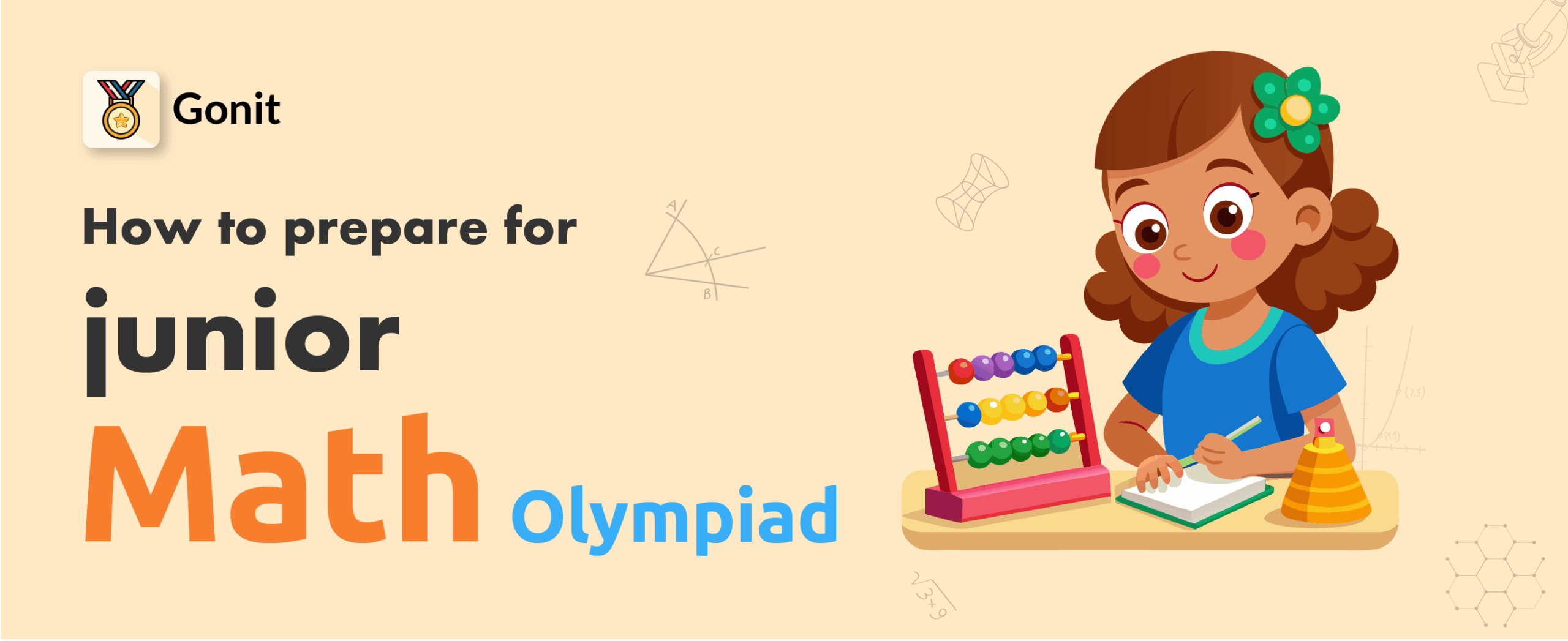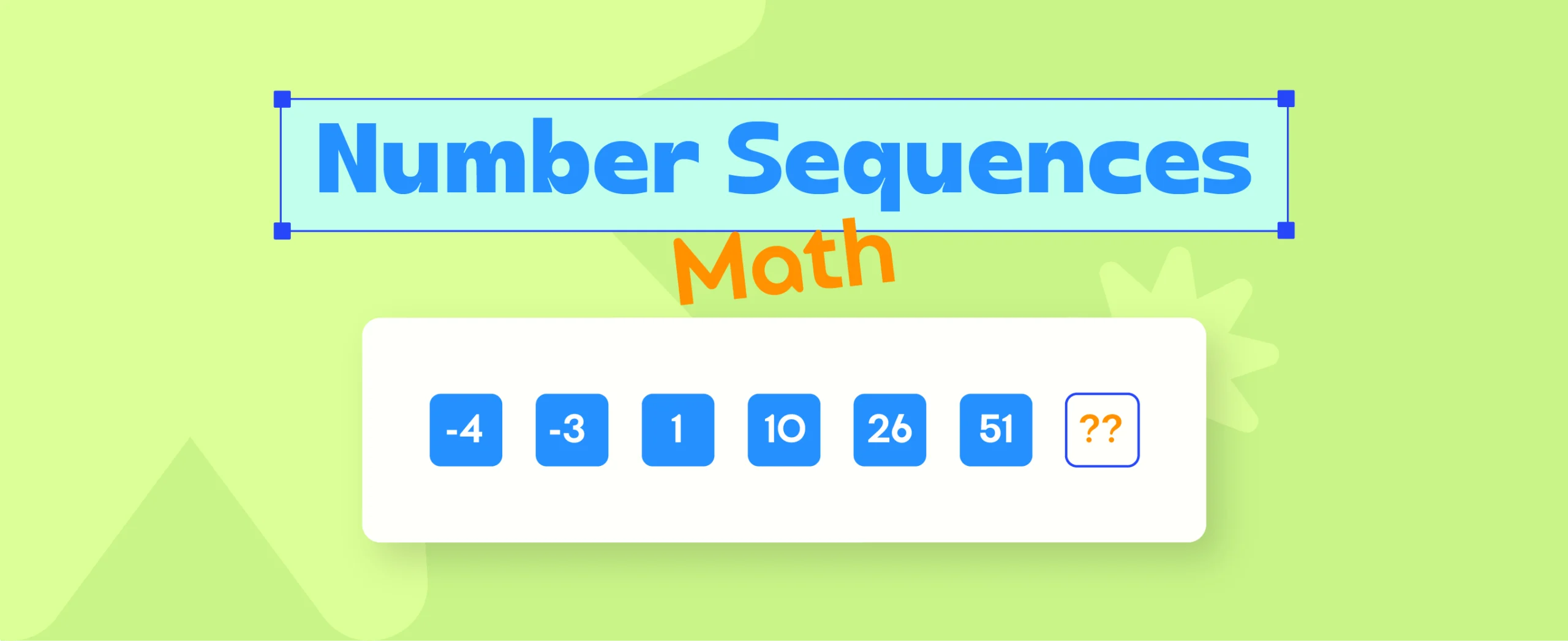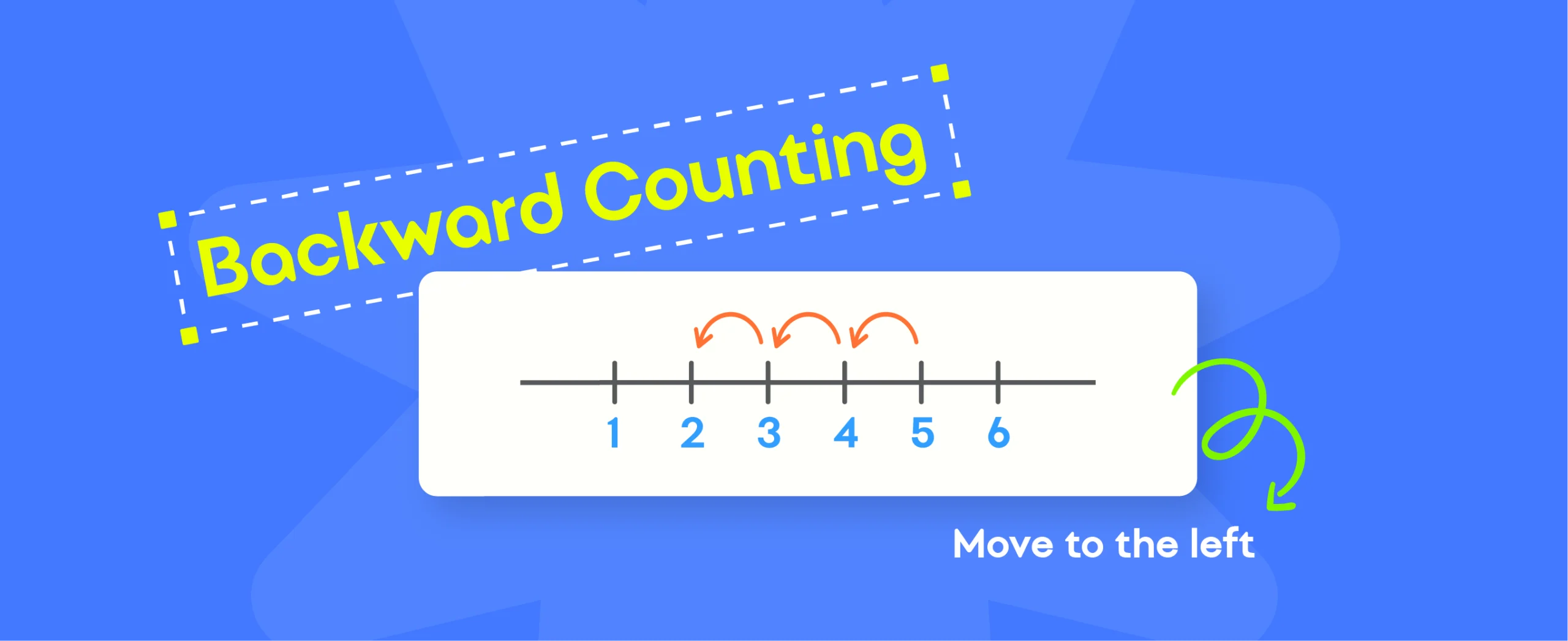Do you love a good challenge, the kind that makes you think harder, smarter, and deeper?
Then the Junior Math Olympiad (JMO) is your perfect arena to test your logic, sharpen your problem-solving skills, and have fun while learning.
Every problem is like a mini mystery waiting for you to unlock its secret, testing not just what you know, but how you reason.
More importantly, the Olympiad helps you develop a genuine love for mathematics, one that will stay with you far beyond the competition and shape the way you think for years to come.
What is the Junior Math Olympiad (JMO)?
If you’re passionate about solving puzzles and love the thrill of challenging yourself with new kinds of math problems, the Junior Math Olympiad (JMO) is made just for you.
It’s one of the most prestigious mathematics competitions for students in grades 5 to 8, designed to take you beyond what’s taught in school and into the exciting world of logical reasoning, problem-solving, and creative thinking.
The goal of the JMO is simple yet powerful to help you explore the beauty of mathematics beyond formulas and memorization.
Every problem you solve pushes you to think critically, analyze carefully, and find creative ways to reach the solution.

Key Focus of the JMO
- Encourages logical reasoning instead of rote memorization.
- Builds a strong foundation in core math areas like arithmetic, algebra, geometry, and number patterns.
- Challenges you with non-routine, analytical problems that test understanding and creativity.
How is JMO Different from School Exams?
Unlike school tests that often focus on repetition and direct answers, the Junior Math Olympiad challenges you to think deeper.
You’ll learn to approach problems from different angles, use reasoning instead of memorization, and develop a genuine love for exploring mathematical ideas.
It’s not about getting the answer fast; it’s about discovering why the answer works.
Why is JMO Important for You?
Starting early with the Junior Math Olympiad helps you build essential skills that will support your future success in advanced Olympiads and beyond.
It strengthens your logical thinking, boosts your confidence, and nurtures a lifelong curiosity for learning.
By taking part in the JMO, you’re not just preparing for a competition, you’re training your mind to think like a mathematician, to stay curious, and to never give up on a tough problem.
And that mindset will help you succeed in every challenge you face, both in math and in life.
Core Subject Areas You Need to Master for the Junior Math Olympiad (JMO)
To shine in the Junior Math Olympiad (JMO), you need to do more than just memorize formulas; you need to understand the core concepts that form the heart of every problem.
The competition tests how well you can apply what you know in creative and logical ways. First, review the types of Olympiad questions to know what to expect.
By mastering the key areas below, you’ll build the strong foundation you need to solve even the trickiest Olympiad questions with confidence.

🔹Number Theory – The Foundation of Mathematical Thinking
Start with the basics of divisibility, factors, and multiples.
Learn how to identify prime and composite numbers, and understand how numbers behave through modular arithmetic (you’ll dive deeper into congruences in classes 7 and 8).
Number theory is like the language of math competitions; once you understand its rules, many problems become easier to decode.
🔹Algebra – Finding Patterns and Connections
Algebra teaches you to see structure in problems. Focus on linear equations, simplifying expressions, and exploring arithmetic and geometric progressions.
Learn the key algebraic identities and how to apply them creatively.
Algebra helps you recognize patterns and relationships, skills that Olympiad questions often rely on.
Geometry – Visualizing and Reasoning
Geometry is where math becomes visual. Study lines, angles, triangles, quadrilaterals, and circles carefully.
Understand symmetry, congruence, and learn to calculate area, perimeter, and volume of common shapes.
When you can visualize problems, you can solve them faster. Geometry is all about training your eyes and mind to work together.
Combinatorics & Logic – Counting and Thinking Creatively
Combinatorics and logic are the playgrounds of creative problem-solving.
Practice counting techniques, learn simple uses of the pigeonhole principle, and sharpen your skills with pattern-recognition puzzles.
Try series completion, magic squares, or cryptarithms; they’re fun and build the kind of flexible thinking that Olympiad questions demand.
Mastering these areas isn’t about memorizing, it’s about understanding concepts deeply and learning how to connect them.
With steady practice, curiosity, and focus, you’ll be fully prepared to take on the Junior Math Olympiad with skill and confidence.
The Strategic Approach to Practice for Junior Math Olympiad Preparation
Preparing for the Junior Math Olympiad (JMO) isn’t just about solving as many problems as possible; it’s about practicing smartly.
A well-structured study plan helps you build strong fundamentals, think creatively, and approach every question with confidence.
Here’s how you can make your practice truly effective:

Build a Rock-Solid Foundation
Start by mastering everything in your school syllabus, but don’t stop there.
Focus on understanding concepts deeply, know why each rule or formula works, not just how to use it.
Olympiad questions often twist familiar ideas into new forms, so conceptual clarity is your biggest strength.
To boost speed and accuracy, practice mental math tricks, quick calculations, estimating results, and using patterns.
Since calculators aren’t allowed in the Olympiad, sharpening your mental arithmetic gives you an extra edge under time pressure.
Embrace Non-Routine Problem Solving
The Junior Math Olympiad is full of creative, non-routine problems — questions you’ve probably never seen before. To handle them:
- Spot patterns and connections between numbers or shapes.
- Simplify the problem by trying smaller or special cases first, then look for a general rule.
- Work backward from the final goal, it’s a powerful strategy for multi-step problems.
- Use diagrams and visuals to represent complex geometry or combinatorics questions.
The more you practice thinking flexibly, the easier it becomes to approach unfamiliar challenges with confidence.
Use the Right Resources and Support
Your success depends not just on effort, but on using the right tools.
- Make solving past papers and timed mock tests a regular part of your preparation. This helps you get comfortable with the exam format and difficulty level.
- Study from trusted books like:
- Gonit App
- Unleash the Maths Olympian in You
- Art of Problem Solving (AoPS) series
- Join math circles or study groups that discuss problems with peers helps you see different perspectives, discover new techniques, and stay motivated.
By following this balanced strategy, a strong foundation, creative problem-solving, and smart use of resources, you’ll train yourself to think like a true Olympian.
Over time, you’ll notice not just better scores, but a deeper love and confidence in mathematics itself.
Tips to Prepare for the Junior Math Olympiad
Preparing for the Junior Math Olympiad (JMO) is all about smart strategy, consistency, and curiosity. You can sharpen your skills with free online Olympiad training.
Whether you’re just getting started or already love solving challenging math problems, these essential tips will help you build confidence, strengthen problem-solving skills, and perform your best in the competition.

1. Understand the Exam Format and Syllabus
Before you begin, take time to learn what to expect in the JMO.
- Levels and Eligibility: The Junior Math Olympiad is usually for students in grades 5–8, though age limits can vary by region or organization.
- Question Structure: Expect a mix of multiple-choice, short-answer, and reasoning-based problems. Younger students (grades 1–4) usually solve around 35 questions, while older groups may face up to 50 with higher difficulty.
- Core Topics: Arithmetic, Geometry, Algebra, Number Theory, and Logical Reasoning, all aligned with school syllabi (CBSE, ICSE, etc.) but designed to test deeper understanding.
- Time & Scoring: Exams last about 60–90 minutes. Each question is typically worth one mark, and partial credit may be given for clear, logical steps. Accuracy and clarity are key!
Knowing the structure early helps you focus your preparation efficiently and reduce surprises on exam day.
2. Build a Strong Foundation in Core Math Areas
A strong foundation is the secret to success. Make sure you’re confident in:
- Arithmetic: Fractions, ratios, percentages, and proportional reasoning.
- Geometry: Lines, angles, triangles, quadrilaterals, and circles; learn to calculate area, perimeter, and volume.
- Algebra: Simplify expressions, solve linear equations, and study number sequences.
- Number Theory: Explore factors, multiples, primes, and divisibility rules.
- Logic & Reasoning: Solve word problems, lateral-thinking puzzles, and pattern-based questions.
Always aim to understand why a concept works not just memorize it. That’s how you build lasting mathematical intuition.
3. Practice with Past Papers and Sample Questions
Practice is your best teacher!
- Solve past JMO papers or similar Olympiad exams to get used to the question styles.
- After each practice session, analyze your mistakes; learn what went wrong and how to fix it.
- Take timed tests to improve speed and endurance.
- Keep a math journal where you record tricky problems, strategies, and key lessons learned.
Over time, this reflection-based practice helps you recognize patterns and strengthens your problem-solving instincts.
4. Learn Effective Problem-Solving Strategies
The best Olympiad solvers don’t just know math, they know how to think about problems.
- Work backward from the goal to find the starting point.
- Draw diagrams or visualize the situation to simplify complex questions.
- Break big problems into smaller steps and solve them one at a time.
- Look for patterns, logic, and symmetry; they often reveal the solution faster.
Balance speed with accuracy by improving your mental math and reviewing your answers carefully.
5. Develop Creative and Logical Thinking
The JMO rewards imagination as much as precision.
- Challenge yourself with brain teasers, logic puzzles, and math riddles.
- Try solving problems in multiple ways to deepen understanding.
- Practice explaining your reasoning clearly, this sharpens logical thinking.
- Explore fun problems like cryptarithms, magic squares, or combinatorial puzzles to keep learning exciting.
Creative thinking makes you flexible and that’s exactly what Olympiad problems demand.
6. Use Quality Resources and Guidance
The right materials and mentors make a big difference.
- Recommended Books:
- Mathematical Circles (Russian Experience)
- First Steps for Math Olympians by J. Douglas Faires
- Mathematical Olympiad for Elementary and Middle School by George Lenchner
- Online Platforms: Use Gonit app, Art of Problem Solving (AoPS), Brilliant.org, and Khan Academy for guided lessons and interactive practice.
- Math Circles & Mentors: Join local or online math clubs to discuss problems, exchange ideas, and learn from peers and teachers.
Learning from others keeps you inspired and helps you see different ways to think about the same problem.
7. Maintain Discipline and a Positive Mindset
Success in Olympiads isn’t about cramming, it’s about consistent effort.
- Set realistic daily and weekly goals to stay on track.
- Take short breaks to stay fresh and avoid burnout.
- When problems get tough, stay calm and patient. Persistence always pays off.
- Keep a growth mindset: every challenge you overcome makes you stronger.
Your attitude determines your success as much as your preparation.
8. Simulate Real Exam Conditions
To perform well under pressure, practice under the same conditions you’ll face in the actual exam.
- Take regular timed mock tests.
- Learn to manage time across different problem sections.
- Review your tests carefully, identify weak areas, and adjust your strategy.
Simulating real conditions builds confidence and helps you stay composed on exam day.
By following these strategies, understanding the format, mastering the fundamentals, and practicing thoughtfully, you’ll be ready to face the Junior Math Olympiad with confidence and creativity.
Remember: success comes from consistent effort and a love for learning. Stay curious, stay patient, and keep challenging yourself. For inspiration, read how to get full marks in Maths Olympiad.
Final Thoughts
Success in the Junior Math Olympiad (JMO) isn’t just about solving problems; it’s about the journey you take to become a better thinker.
Every puzzle you work through strengthens your mind, sharpens your reasoning, and builds your confidence step by step.
Remember, true Olympiad success comes from curiosity, consistency, and creativity.
When you keep your passion alive and your efforts steady, the rewards, both in results and personal growth, will follow naturally.
So keep learning, keep questioning, and most importantly, keep believing in yourself.





